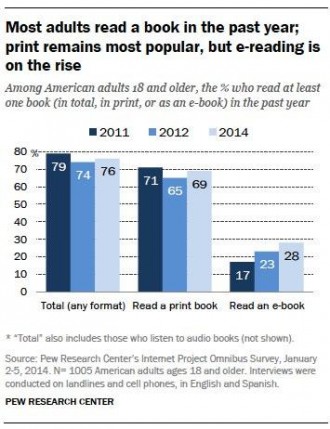I wasn’t aware of the controversy surrounding HarperCollins and their eBook policy. However, after doing some research and reading letters from librarians and the publisher’s response, I believe that HarperCollins is setting a dangerous precedent. In my opinion, their policy undermines the entire library loan system and will have some lasting effects on readers’ access and preservation of knowledge.
When a library purchases a book to add to its collection, they own the book. They can lend it as many times as they wish and it will never be taken out of circulation. While I do understand that hard-copy books will eventually deteriorate, the average life is much longer than one year. When a library purchases an eBook from HarperCollins, the new policy only gives them a one year (or 26 circulation) license, for about the same price. So, after 26 people have checked out the eBook, the library loses its rights to the book until they purchase it AGAIN. Libraries are losing their money and rights to the books. According to Troy Lambert (2015), this policy steals the library’s ability to digitally preserve the book for future generations.
While this new technology is providing access to books and the ability to read for millions of people, HarperCollins seems to be taking a large step back. Not only does this policy affect libraries, but it affects their readers, too. For most popular eBooks, libraries have waitlists longer than the license HarperCollins is allowing. Libraries, being publically funded, may not be able to purchase a new copy of the book every year. Also, after the policy announcement, many librarians agreed to boycott any HarperCollins publication, further denying access to their readers.
Finally, HarperCollins might actually be doing themselves a disservice. Studies show that about 50% of people who read an author’s work at their local library actually end up purchasing more of their books later (Zikuhr, 2012). Allowing their publications to be lent at more libraries is marketing and will eventually end up in more sales for the publisher/author.

According to Pew Research Center, 28 percent of adults read at least one eBook in 2014. This is up 11 percent from 2011. People need access to these eBooks, and HarperCollins’ eBook policy is creating a barrier. Libraries should be able to purchase one copy of an eBook, maybe at a higher cost than a paper book, and be able to lend it indefinitely.
References:
Lambert, T. (2015, October 21). Why Libraries Win: Library Lending vs. E-book Subscription Services. Retrieved March 10, 2016, from http://publiclibrariesonline.org/2015/10/why-libraries-win-library-lending-vs-e-book-subscription-services/
Page, B. (2011, March 01). Fury over ‘stupid’ restrictions to library ebook loans. Retrieved March 10, 2016, from http://www.theguardian.com/books/2011/mar/01/restrictions-library-ebook-loans
Zickuhr, K. (2012, June 22). Part 1: An introduction to the issues surrounding libraries and e-books. Retrieved March 10, 2016, from http://libraries.pewinternet.org/2012/06/22/part-1-an-introduction-to-the-issues-surrounding-libraries-and-e-books/
